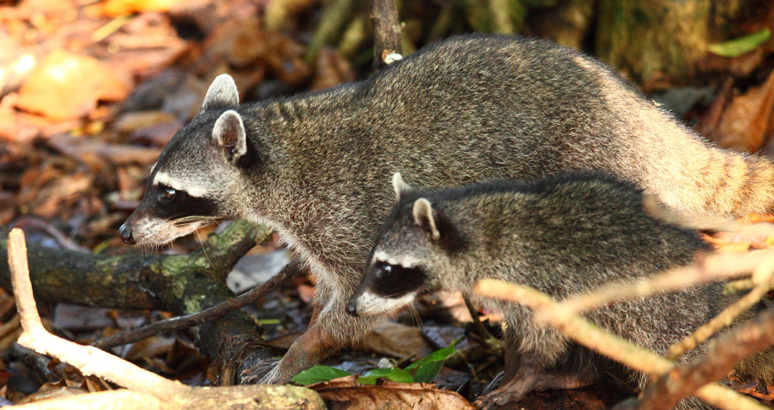
Finding baby raccoons (kits) on your property may come as a surprise and be concerning. You may think they are harmless with their small size and innocent look, but you must be cautious. Poor handling can stress the animals and pose dangers to you. We at Action Wildlife Removal provide humane raccoon removal, which is safe for you and the wildlife.
Assess the Situation
Before rushing to rescue baby raccoons, the first step is assessing whether they need help. Raccoons are nocturnal animals, and their mothers frequently leave them for a short period to find food. If the babies do not appear injured and are in a safe place, their mother will soon return. Take a step back and watch from the sidelines so that you do not interfere with the family dynamic.
Do Not Touch the Raccoons
You should grab the baby raccoons but do not touch them physically. Young wild animals can still carry exotic diseases like rabies and parasites. Handling them also causes stress and disrupts their natural behavior.
Check for Symptoms of Distress or Pain
You should intervene immediately if they are crying nonstop, are cold, or look hurt. Signs of distress include lethargy, visible wounds, and flies around their bodies. Then, you’ll need to get professional help.
Check for a Nest or Den
Raccoons often build dens in attics, garages, and other protected areas. If you encounter baby raccoons, search the vicinity of their den. This also helps understand if the mother continues to raise them. Do not enter dangerous areas such as attics or crawlspaces without the appropriate gear.
Call a Wildlife Removal Professional
If you are uncertain about the situation or require help, contact a licensed wildlife removal service such as Action Wildlife Removal. They have the experience and equipment to safely handle a baby raccoon and ensure it is taken or reunited with its mother.
Keep Other Raccoons at Bay
After you have safely removed the baby raccoons, you can take preventative measures to prevent this from happening again. Close off any access points to your home, seal garbage bins, and remove food sources. Animal Wildlife Removal, for example, can offer raccoon-proofing services and advice.
Respect Wildlife Laws
In many regions, raccoons cannot be kept as pets because wildlife conservation laws protect them. You need to adhere to rules about their removal and relocation. Professionals like us know these laws, and our professional handling can ensure compliance.
Avoid DIY Removal
Removing baby raccoons on your own poses a hazard to you and the animals. If mishandled, the babies can be separated from their mothers or hurt—a professional who can humanely and properly remove these pests.
Conclusion
If you encounter baby raccoons on your property, you need to be prepared to respond calmly and knowledgeablely. The first thing you must do is assess the situation, avoid all contact, and call professionals such as Action Wildlife Removal for animal and home safety. Take preventative measures to help prevent the issue from reoccurring, and rest easy knowing the matter was dealt with responsibly.

